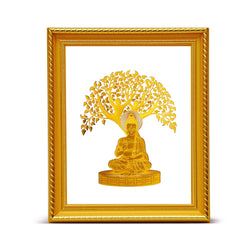Hinduism consists of rituals that serve as a way to connect with the divine. Nowadays, puja (worship) is one of the most used and rich rituals.Whether performed daily or on special occasions, puja has deep meaning for devotees and provides a way to express truth, seek blessings and grow spiritually.
This guide explores the importance of Hindu puja rituals and their deep spiritual meaning. Shop all kinds of puja samagri online only at Pujashoppe.
What is Puja?
Puja is a form of worship that involves offering prayers, flowers, food and other symbolic objects to God. This is a way for worshipers to talk to God, seek blessings and thanks. Each step of the puja has a specific purpose that represents the relationship between the devotee and God.
Main Elements of Hindu Puja
Every ceremony in puja is full of symbolic meaning and guides the devotees on their spiritual journey. Here is the guide to puja and their importance:
-
Light the lamp
The ceremony begins by lighting the oil lamp. This lamp represents Agni, the god of fire, who acts as an intermediary between the devotee and God. Flame also represents light, knowledge and the elimination of ignorance.
spiritual meaning: lighting a lamp means removing darkness and the presence of divine energy in the room.
-
Flower Meditation (Pushpanjali)
Flowers are offered to the gods as symbols of purity and sacrifice. Each flower, especially the lotus, is symbolic of purity and spiritual awakening.
Spiritual Significance: Sending flowers shows the honesty and blossoming of one's spirit towards spiritual progress.
-
By Tilak (forehead mark)
Students often apply sandalwood paste, kumkum (vermilion) or holy ash on the forehead, usually between the eyebrows, the area of the third. eyebrows the eye
Spiritual Meaning: Tilak symbolizes clarity and focus of the mind and aids in clarity and spiritual focus.
-
Chanting Mantras
Mantras are sacred sounds or verses chanted during puja to invoke God. These chants have powerful vibrations that purify the air and increase spiritual energy.
Spiritual Importance: Mantras help raise awareness, draw closer to the divine, and purify the mind and environment.
-
Water Bathing (Abishekam)
In many pujas the idol of God is washed with water and other things like milk, honey , or ghee in the sense called Abhishekam.
Spiritual Image: Abhishekam symbolizes the purification of God and the washing away of impurities, sins, and the devotee.
-
Offering food (Naivedyam)
After the puja, students offer food, fruits, and sweets to God. After blessing, these gifts are distributed as prasad which is a symbol of divine blessings.
Spiritual Meaning: Offering food shows gratitude for life and the blessings of life, and eating prasad is receiving God's grace.
-
Incense (Dhoopam)
Incense is burned during puja to create a fragrant atmosphere. The rising smoke symbolizes the wind that carries the worshiper's prayers to God.
Spiritual Significance: Purifies the environment, symbolizes sacrifice, and helps the soul's aspirations to the gods. Buy sampoorna puja kits only at Pujashoppe.
-
Pradakshina
Devotees circumambulate the deity after completing the puja as a sign of reverence and respect.
Spiritual Method: Tawaf is the symbol of the worshipers' submission to God and their journey on the right path of Dharma.
Special Pujas and their Significance
Apart from the daily pujas, special pujas are performed during festivals and important world events. Here are some of the famous ones and their meanings:
Ganesh Puja
Dedicated to Lord Ganesha, this puja is performed before starting a new work in removing obstacles and ensuring success
Lakshmi Puja
Performed during Diwali, Lakshmi Puja is dedicated to Goddess Lakshmi, the goddess of wealth, prosperity and prosperity.
Durga Puja
Durga Puja celebrates the power and protection of Goddess Durga. It is performed during the Navratri festival to celebrate his victory over evil.
Significance of offerings
Each offering made during the puja has a deep spiritual meaning:
- Water: A symbol of purity and life.
- Fruits: represents the results of actions and karma.
- Coconuts : Represents the breaking of the ego to reveal the pure soul within.
- Sweets : Represents the joy and sweetness of divine blessings.
Spiritual Benefits of Puja
The significance of puja rituals are as follows-
- Peace of Mind: Pooja provides a state of calm and peace and help the devotee achieve clarity of mind and inner peace
- Concentration: Repetition of mantras and rituals teaches and increases concentration.
- Positive Energy: Vibrations caused by bugs and offerings help remove negative energy and create a positive environment.
Conclusion
Hindu puja rituals are much more than sacrifices. It is a symbol that shows the depth of the relationship between the devotee and the deity. Each ceremony, from offering flowers to chanting mantras, is a spiritual practice that promotes personal growth and inner peace.
Whether this ritual is done daily or on special occasions, it reminds us of the values of humility, gratitude and sacrifice in our lives. Through the practice of pooja one can experience a deep connection with divine consciousness and the soul. Shop from Pujashoppe. Buy Now.




